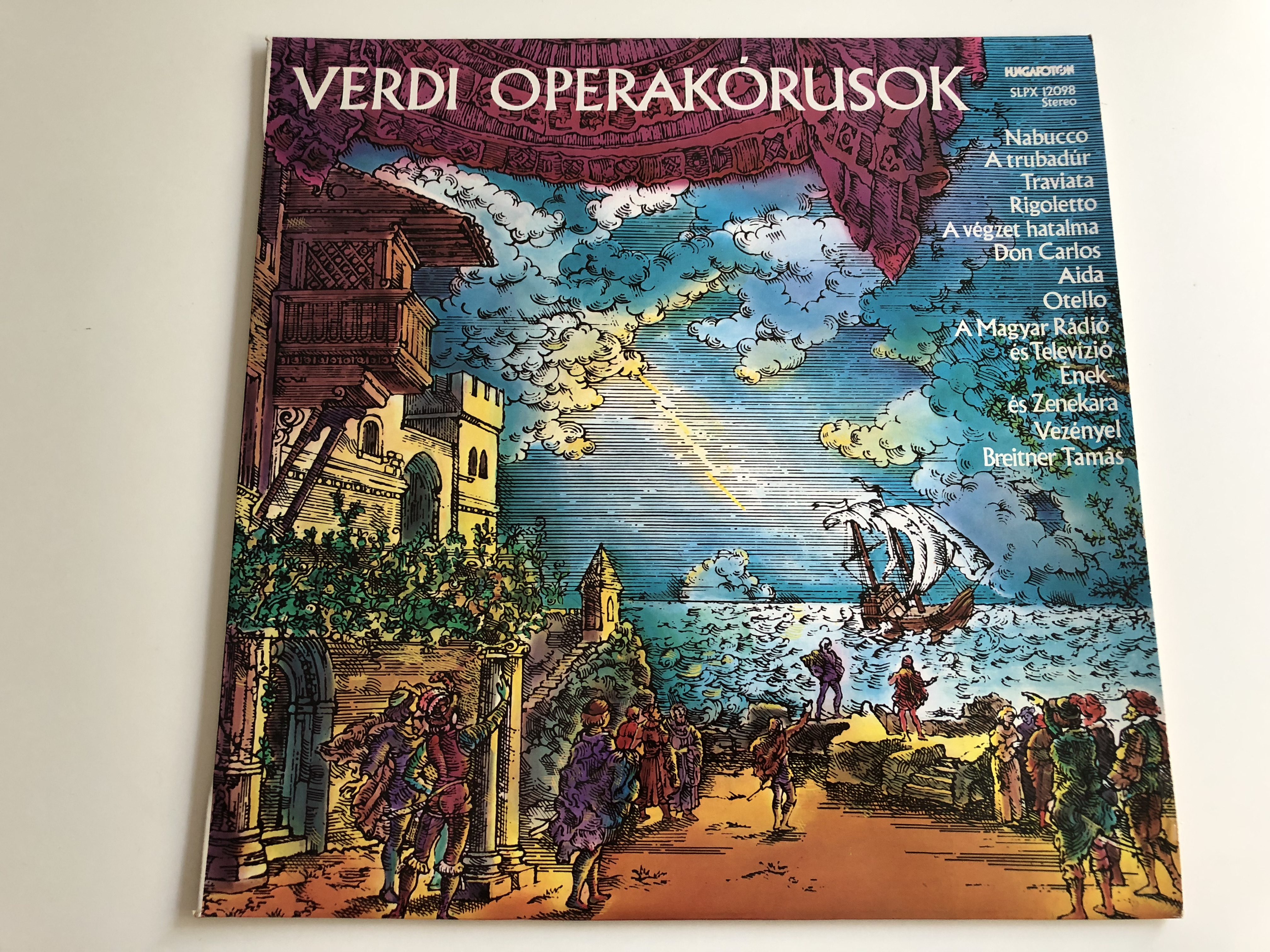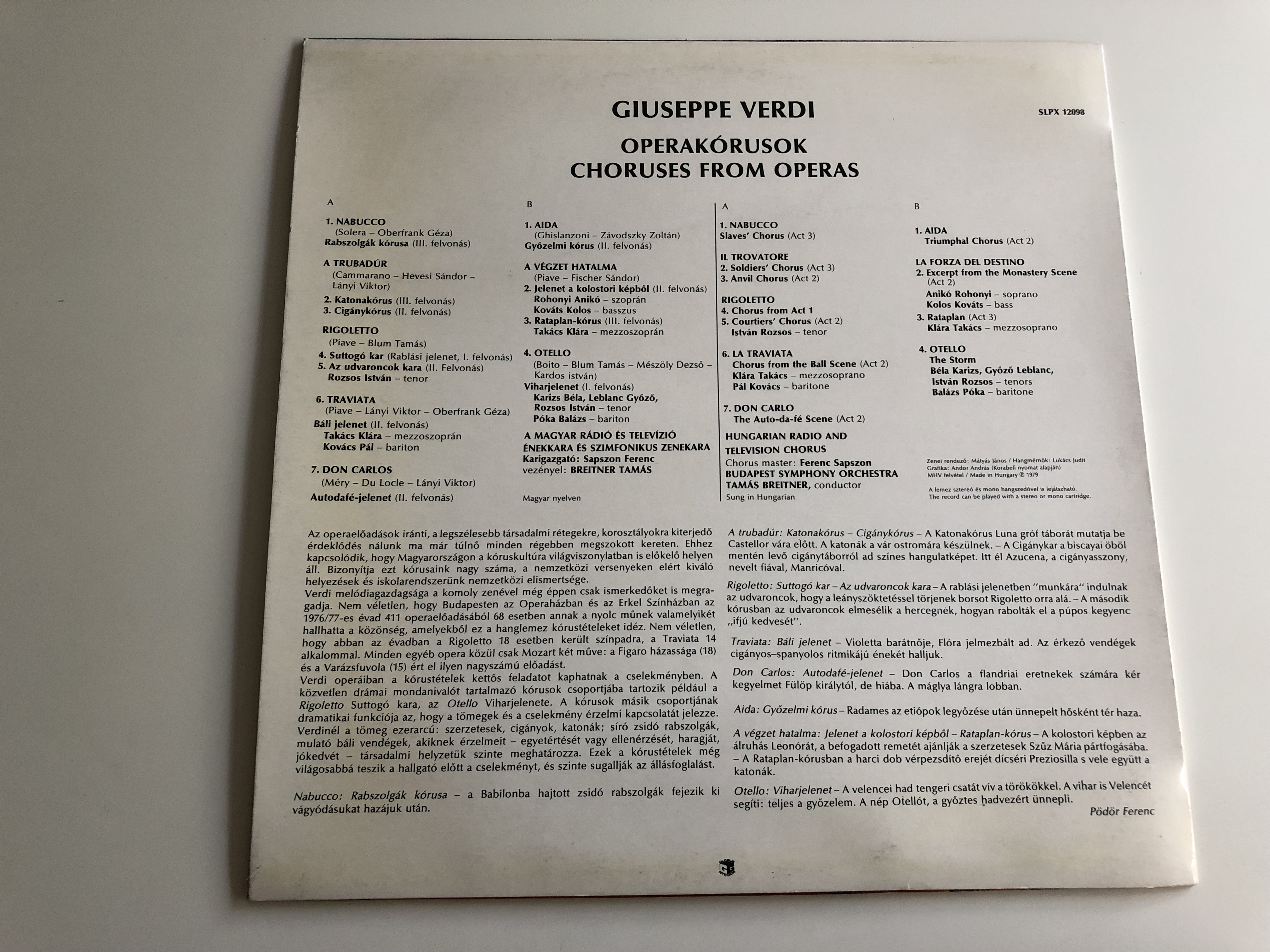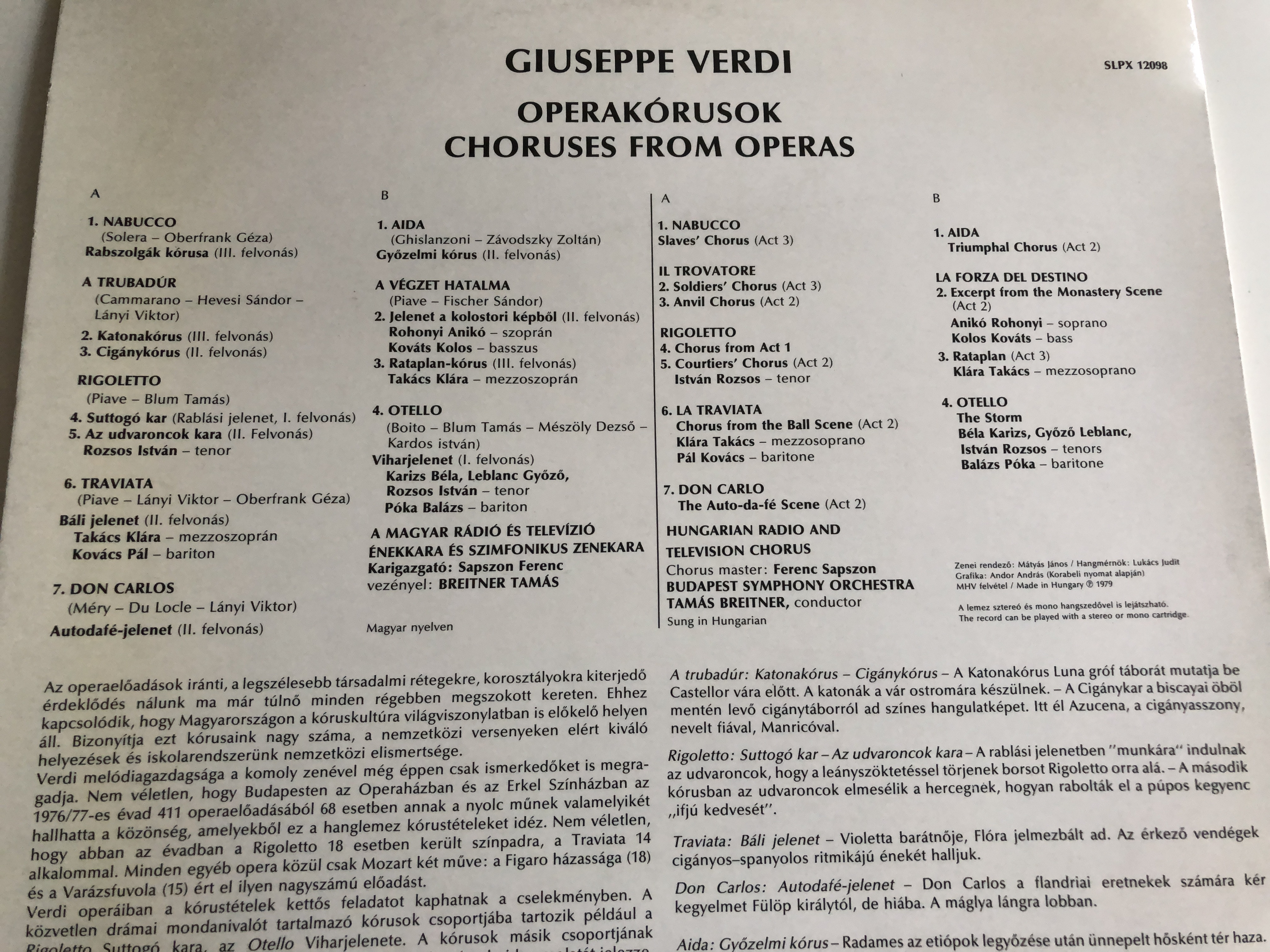Description
Verdi Operakórusok / Choruses From Operas / Magyar Rádió És Televízió Ének És Zenekara / Breitner Tamás / HUNGAROTON LP STEREO SLPX 12098
Giuseppe Fortunino Francesco Verdi (Italian: [dʒuˈzɛppe ˈverdi]; 9 or 10 October 1813 – 27 January 1901) was an Italian opera composer. He was born near Busseto to a provincial family of moderate means, receiving a musical education with the help of a local patron. Verdi came to dominate the Italian opera scene after the era of Gioachino Rossini, Gaetano Donizetti, and Vincenzo Bellini, whose works significantly influenced him.
In his early operas, Verdi demonstrated a sympathy with the Risorgimento movement which sought the unification of Italy. He also participated briefly as an elected politician. The chorus "Va, pensiero" from his early opera Nabucco (1842), and similar choruses in later operas, were much in the spirit of the unification movement, and the composer himself became esteemed as a representative of these ideals. An intensely private person, Verdi did not seek to ingratiate himself with popular movements . As he became professionally successful he was able to reduce his operatic workload and sought to establish himself as a landowner in his native region. He surprised the musical world by returning, after his success with the opera Aida (1871), with three late masterpieces: his Requiem (1874), and the operas Otello (1887) and Falstaff (1893).
His operas remain extremely popular, especially the three peaks of his 'middle period': Rigoletto, Il trovatore and La traviata. The bicentenary of his birth in 2013 was widely celebrated in broadcasts and performances.
Tracklist:
| Nabucco | ||
| A1 | Rabszolgák Kórusa (III. Felvonás) | |
|
A Trubadúr |
||
| A2 | Katonakórus (III. Felvonás) | |
| A3 | Cigánykórus (II. Felvonás) | |
|
Rigoletto |
||
| A4 | Suttogó kórus (Rablási Jelenet, I. Felvonás) | |
| A5 | Az Udvaroncok Kara
Tenor Vocals – Rozsos István (2) |
|
|
Traviata |
||
| A6 | Báli Jelenet (II. Felvonás)
Baritone Vocals – Kovács Pál , Mezzo-soprano Vocals – Takács Klára |
|
|
Don Carlos |
||
| A7 | Autodafé - Jelenet (II. Felvonás) | |
|
Aida |
||
| B1 | Gyõzelmi Kórus (II. Felvonás) | |
|
A Végzet Hatalma |
||
| B2 | Jelenet A Kolostori Képbõl (II. Felvonás)
Bass Vocals – Kolos Kováts , Soprano Vocals – Rohonyi Anikó |
|
| B3 | Rataplan - Kórus (III. Felvonás)
Mezzo-soprano Vocals – Takács Klára |
|
|
Otello |
||
| B4 | Viharjelenet (I. Felvonás)
Baritone Vocals – Póka Balázs , Tenor Vocals – Karizs Béla, Leblanc Győző, Rozsos István (2) |
- Chorus – Magyar Rádió És Televízió Énekkara
- Composed By – Giuseppe Verdi
- Conductor – Breitner Tamás
- Orchestra – Magyar Rádió És Televízió Szimfónikus Zenekara



BOX #76























